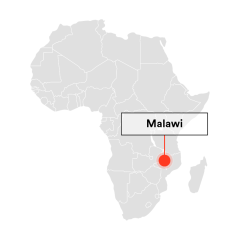Why work with women’s movements

Why work with women’s movements
Case Studies

In Malawi, Spotlight Initiative strengthened women’s movements in three regions (north, central and southern regions) and supported the formation of a national level movement: The Women’s Manifesto, coordinated by civil society organisations. Aligning with the principle of leave no one behind, the movement’s leadership includes rural women, survivors of violence, persons with disabilities and persons with albinism. Sixty five leaders from the movement developed their ability to use community scorecards (as a social accountability tool), create action plans and advance evidence-based advocacy, and contributed to the development of a movement building tool kit, which was used to update and establish 116 women’s groups and 11 girls’ groups (encompassing a total of 1,426 women and girls).
As a result of their advocacy, 187 cases related to sexual and gender-based violence, sexual and reproductive health and rights and harmful practices were resolved by women’s rights advocates, who used a scorecard to hold district officers accountable on delays in case handling. Consequently, one district commissioner issued a directive to the rural hospital to ensure privacy and to enable access to sexual and reproductive health services.







